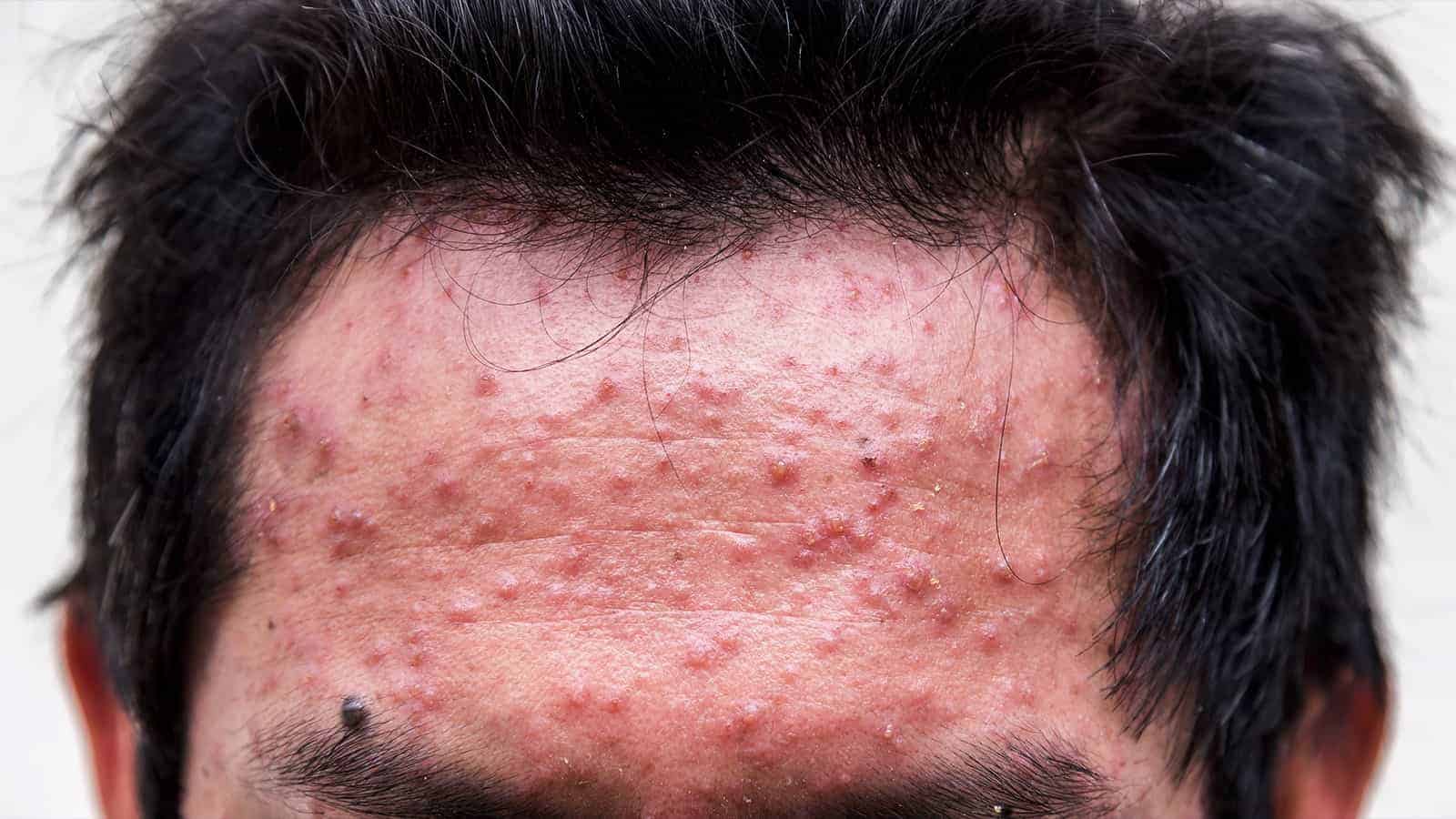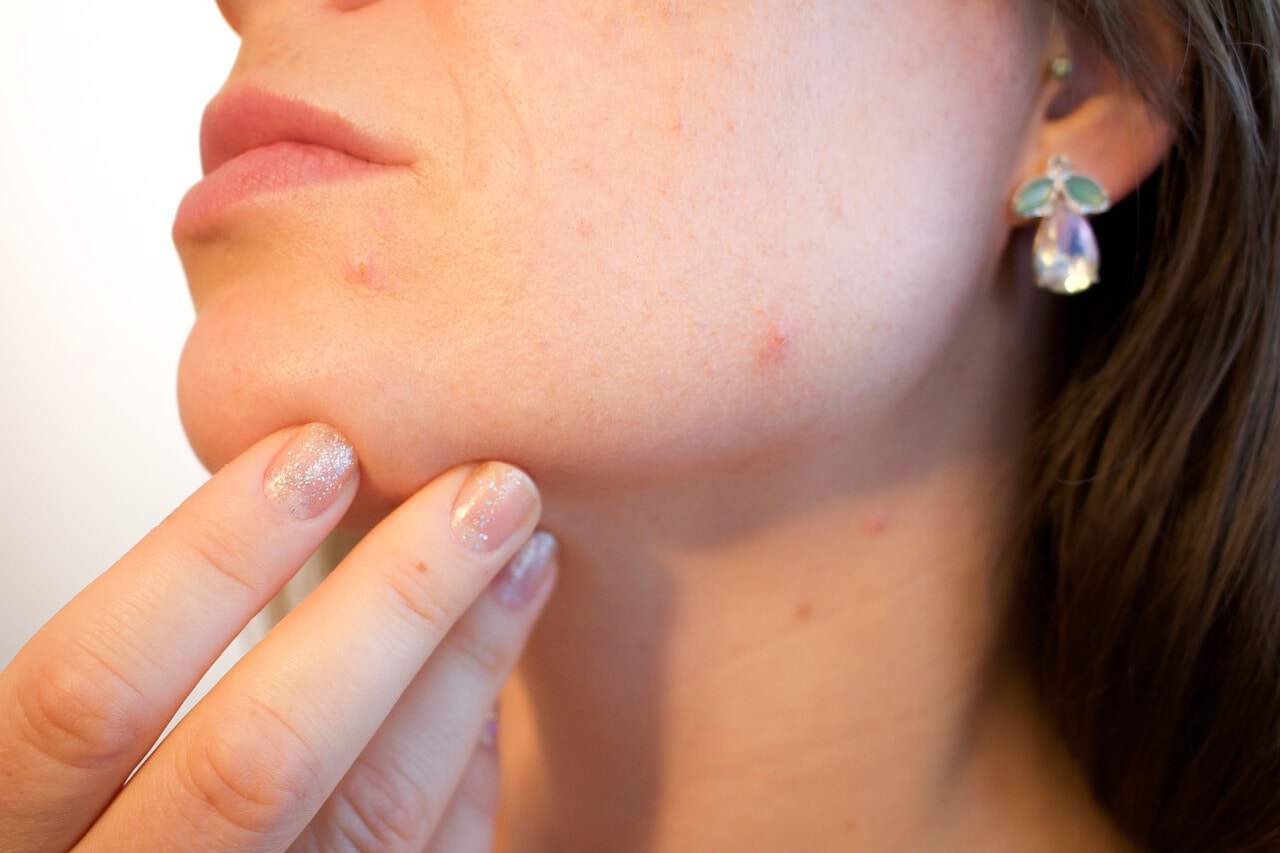Acne affects as many as 9.4% of people globally. The condition can leave you with a lowered self-confidence and interfere with daily life. Most of us reach for creams or serums containing chemicals, vitamins, minerals, and ingredients we are unsure about. Could zinc be the answer we are seeking, or is it another promise that fails to deliver results? (1)
What is Zinc?
It is an essential mineral present in many foods and over-the-counter topical acne treatments. The essential nutrient is important for a healthy functioning immune system, which includes fighting off harmful bacteria and viruses and skin health.
Without it, your body cannot make new cells or DNA.
Your body metabolizes it, but you do not store it. This means you need a regular supply from your food or a supplement to ensure your immune system, metabolic needs, and growth and tissue repair remain healthy.
Vegetarians and Absorption
Deficiency might affect close to one-third of the world’s population. Some people do not absorb it well because of medical conditions. Others are lacking the essential mineral because of their diet.
Vegetarian, vegan, and protein-restricted diets can leave you deficient. The phytates acid present in whole grain breads, legumes, and seeds can fully hinder your absorption. (2)
You should not avoid foods with phytates as they provide your body with phosphorus, antioxidants, and help protect your kidneys. The upside is it only affects the minerals and nutrients present in the meal, so you are better off consuming it without phytates. (3)
Another tip is to soak, sprout, or ferment these foods to reduce the phytic acid. (4)
Common Signs of a Minor Deficiency
• Diarrhea
• Thinning hair
• Decreased appetite
• Mood fluctuations
• Dry skin
• Decreased immunity and healing of wounds
• Fertility problems
Having one or more of these symptoms could mean you are deficient. However, most of these ailments are too common for diagnose by symptoms alone. Only a blood test administered by your doctor can tell your levels. Since you replenish your levels daily, you could run the risk of negative test results if a well-absorbed meal proceeds the blood test.
Who is at Risk for Deficiency?
• Vegetarians
• Vegans
• Anorexics
• Bulimics
• Alcoholics
• If you have chronic kidney disease
• If you have a gastrointestinal disease
• If you have sickle cell anemia
• If you’re pregnant
• If you’re breastfeeding
• Older, exclusively breastfed babies
What Causes Acne?
The acne vulgaris bacteria is the leading cause of pimples, but dead skin cells, dirt, and oil can be culprits or worsen your acne flares.
Finding a pimple here and there is not acne. Zits, blackheads, and white heads can occur without you having acne. The same applies to cysts, nodules, and papules.
When your pores repeatedly clog and many pimples form at once, you have acne. Most home-based and over-the-counter treatments are relatively the same regardless if you have a zit or acne though, so the information is valuable for treating occasional breakouts too.
Types of Acne
• Common or hormonal
• Cystic
Did you know there are two major types of acne? Common or hormonal is easiest to explain. Your first pimple or acne breakout likely coincided with puberty. For women, a vicious cycle began where roughly every 28-30 days, your acne would flare.
Cystic acne is not as simple. Hormones or a combination of just about anything can cause this type of acne. To describe it would be like saying you have acne on steroids. These are generally the more severe cases, which can include greater pain and skin inflammation, affected area size, and more.
If you are unsure which type of acne you have, you should speak with your doctor or a dermatologist. They can offer you guidance since you could technically have both hormonal and cystic acne. Remember, it can affect more than one area of your body.
Symptoms of Common and Cystic Acne
• Any combination of pimples, blackheads, white heads, cysts, nodules, or papules nearly anywhere on your body
• Inflammation
• Severe to mild pain with cysts and nodules
The symptoms are the same regardless of acne type.
Acne Risk Factors
• Genetics
• Poor diet
• Medications like birth control
• Anyone experiencing hormonal shifts, like puberty, pregnancy, or menopause
• Certain endocrine disorders
• Certain autoimmune disorders
• Stress
Teenagers and acne go hand-in-hand, but anyone can develop acne at any time in their life. The most common cause is a hormonal shift, which is not the same as an imbalance. Women are more susceptible due to pregnancy, menstruation, and menopause where their hormones fluctuate greatly but temporarily.
While old wives tales exist about foods that cause acne, we note poor diet because a diet of junk foods, some or mostly carbohydrates, and/ or refined sugars will deplete and starve your body of essential nutrients. (5)
Hygiene can be another factor if you are improperly washing your face and body. Scrubbing too hard or using harsh chemicals can irritate acne prone skin. Not washing your face or gently exfoliating can also cause or worsen acne. Hygiene is important for preventing and treatment, but you are not dirty because you have acne.
Preventing Acne
• Wash your face twice a day with a gentle cleanser
• Use a gentle face scrub or mask to remove dead skin every other day
• Don’t touch your face
• Keep hair from touching your face
• Any makeup you use should be noncomedongenic because it won’t clog your pores
• Use oil free facial lotions and moisturizers
• Fight the urge to squeeze or pop blemishes
• Avoid harsh astringents that can dry out skin and lead to more oil production
What Role Does Zinc Play in Treating Acne?
Scientists and dermatologists have widely studied zinc for acne treatment. You can use an oral or topical form, and both show success when treating mild to moderate acne. Oral has been most effective in severe cases.
The link between zinc and acne arrived when a doctor noted their patient’s deficiency. Large portions of acne patients in studies have low serum levels of it. A hypothesis was born. It lead many researchers to test topically applied and oral forms of the mineral.
With growing concerns on acne-related antibiotic resistance, acne researchers are constantly testing new theories and medications. Antibiotics are still utilized for acne treatments, especially moderate to severe cases.
Secondary Treatment Benefits
Zinc-based solutions offer a secondary benefit. They can increase the absorption and effectiveness of other acne medicines. This secondary benefit occurs due to its anti-inflammatory nature and its ability to reduce bacteria.
It can also treat underlying deficiency, which could be a singular or partly be a cause for your acne.
How Does it Compare to Other Treatments?
This study tested a tea lotion against it. It does not explain what tea lotion is, but they cite it as an alternative therapy. The results show that zinc for acne treatment was favorable. Changes were not as significant as the tea lotion.
Topical clindamycin and benzoyl peroxide also outperformed it in this study, but only in the time it took researchers and patients to see a reduction in skin lesions. Otherwise, they performed equally well.
Dietary Sources for Zinc
• Sprouted whole grains, like quinoa and oats
• Mushrooms
• Kale
• Corn
• Spinach
• Avocado
• Prunes
• Asparagus
• Beet greens
• Soaked legumes
• Nuts and seeds
• Dark chocolate
It is important to note that dosage should be limited to no more than 34 mg for teens and 40mg for adults. The NIH recommends lower daily doses, but your diet, medical conditions, and deficiency can alter these numbers.
If you alter your food choices, but you are still deficient, you should consider speaking with your doctor or a nutritionist. It could be a timing issue, such as eating your zinc-rich foods too close to phytates or improperly preparing your choices.
It could also be an underlying condition preventing your absorption, another unrelated condition, or it might be a signal that you need to take a supplement.
Additional Scientifically Proven Health Benefits of Zinc
• Dandruff control
• Fungal infections
• Warts, including viral HPV and herpes clusters
• Alopecia
• Eczema on hands and diaper area
• Rosacea
• Natural wrinkle reducer
• Natural broad-spectrum sunscreen
Final Thoughts on Zinc for Acne
Does zinc for acne work? It just might be what your body needs to kick acne to the curb.
Zinc provides your skin and immune system with multiple benefits. It is easy to incorporate into your diet, and you have plenty of tasty choices regardless of your lifestyle.
For treating acne, studies show ingested varieties of the mineral provide the strongest results for moderate to severe cases. Mild to moderate acne saw benefits from topical applications too.
Remember, zinc-based treatments will not work overnight. They can take days or longer, depending on whether you are zinc-deficient. You can use them alongside other medications too, but you should speak with your doctor to rule out interactions.
Including more in your diet or skin care regimen offers additional benefits too, including anti-aging and natural sunscreen. We see little reason not to consider making it a part of your daily routine.


















